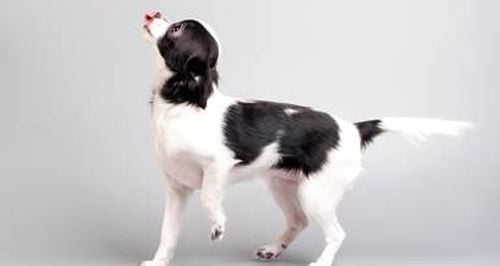Have you ever wondered why your furry friend licks your face so aggressively? It’s not uncommon for dogs to show their affection by licking, but when the behavior becomes overly aggressive, it can leave you puzzled. Let’s delve into the reasons behind this behavior and what it might signify.
Understanding your dog’s behavior is crucial in building a strong and healthy relationship with your pet. When your dog aggressively licks your face, it could be because they are trying to communicate something to you. Dogs use licking as a way to interact with their environment, and in the case of licking your face, it may be their way of seeking attention or expressing their love for you. It’s important to pay attention to the context in which the licking occurs to better understand your dog’s intentions.
Aggressive licking can also be a sign of anxiety or stress in dogs. Just like humans, dogs can experience anxiety, and licking can be a self-soothing behavior for them. When they’re feeling stressed or anxious, they may resort to licking as a way to calm themselves down. If you notice that your dog licks your face aggressively in certain situations, it might be worth exploring whether they are feeling anxious or uncomfortable at that moment.
Another possible reason for aggressive licking could be a form of dominance or attention-seeking behavior. Dogs may resort to licking your face as a way to assert their dominance or to get your attention. This behavior can be more common in dogs that have not received sufficient training or socialization, as they may not have learned alternative ways to communicate their needs and desires.
It’s important to note that while licking is a natural behavior for dogs, excessive or aggressive licking can be a cause for concern. Excessive licking can lead to irritation or even injury to the skin, both for the dog and the person being licked. If your dog’s aggressive licking is causing distress or discomfort, it’s essential to address the behavior through training and positive reinforcement techniques.
When dealing with aggressive licking, it’s crucial to consult a professional dog trainer or behaviorist who can help you understand the underlying reasons for the behavior and provide guidance on how to address it effectively. With the right approach and training, you can help your dog develop healthier ways to communicate and interact with you, strengthening the bond between you and your furry companion.
In conclusion, aggressive licking from your dog may stem from various reasons, including a desire for attention, anxiety, or a form of dominance. By paying attention to the context of the behavior and seeking professional guidance when needed, you can better understand and address your dog’s aggressive licking. Remember, patience and empathy are key when working to modify your dog’s behavior, ultimately leading to a happier and more harmonious relationship between you and your beloved pet.

